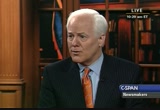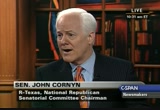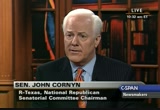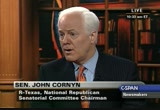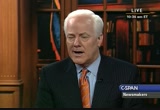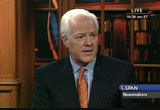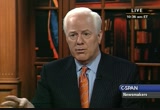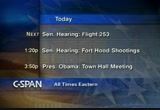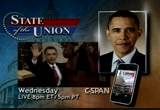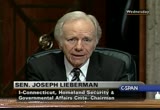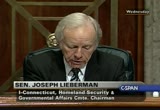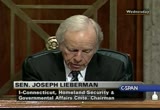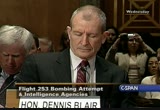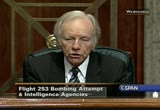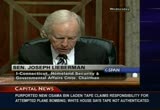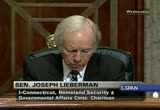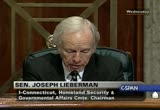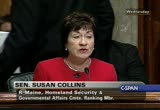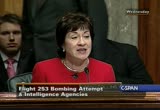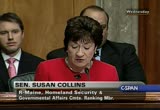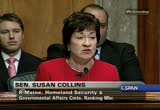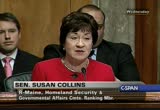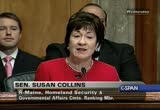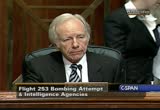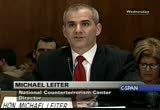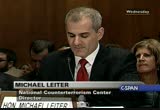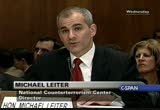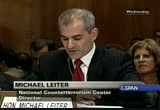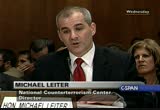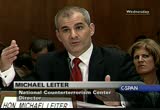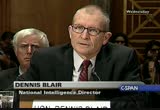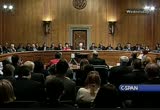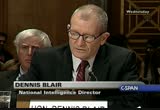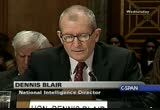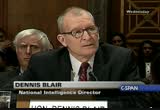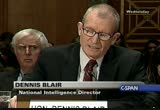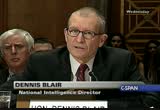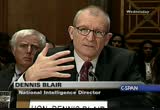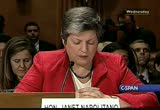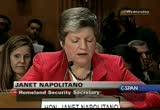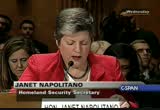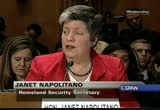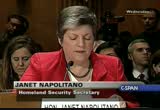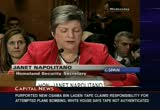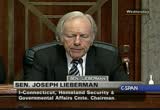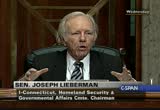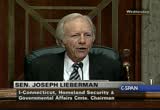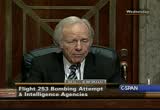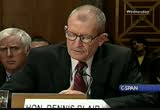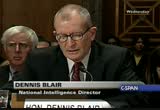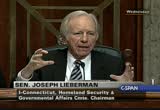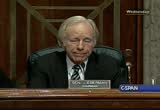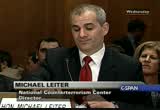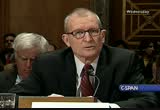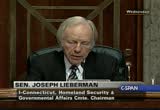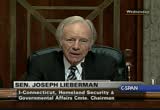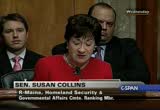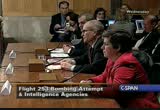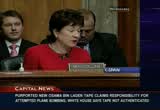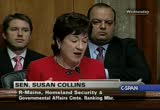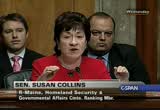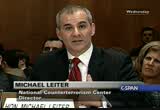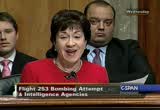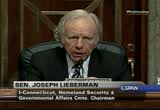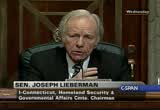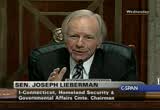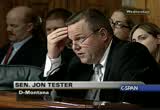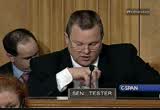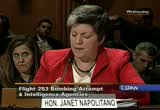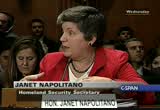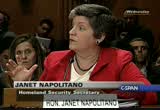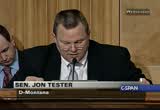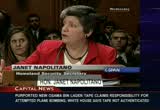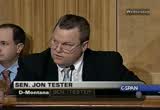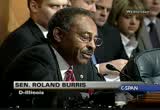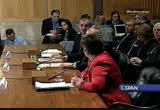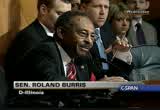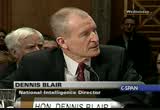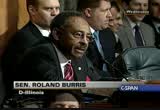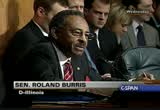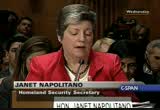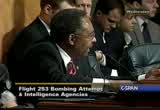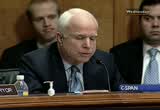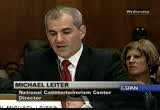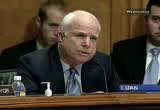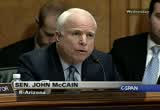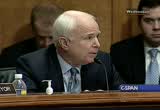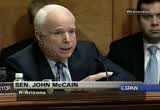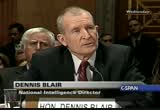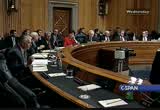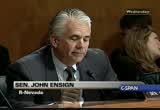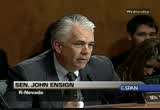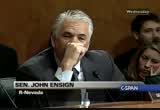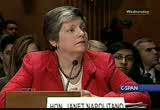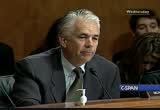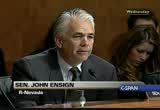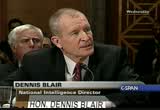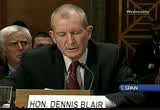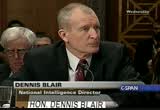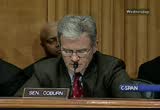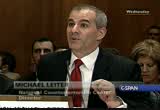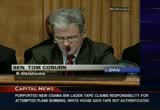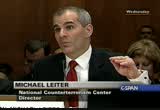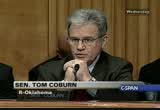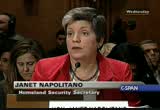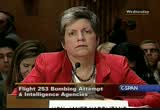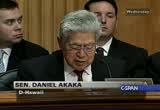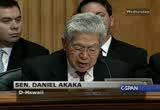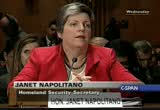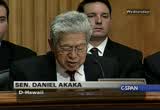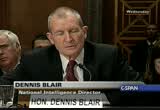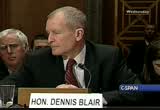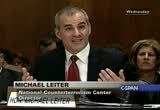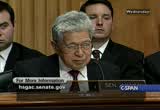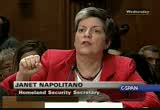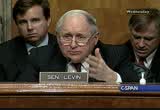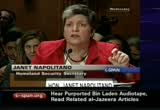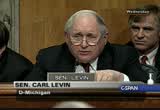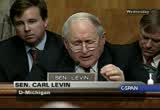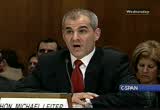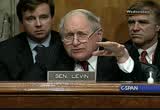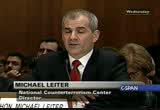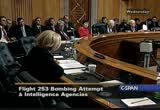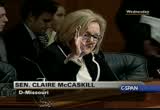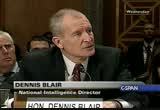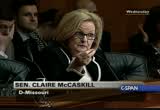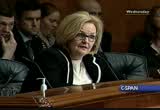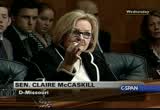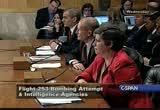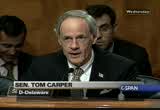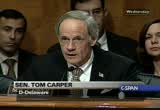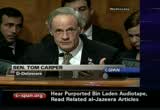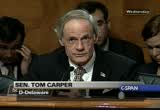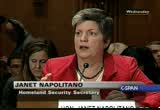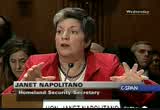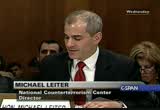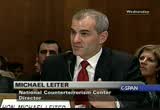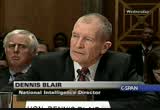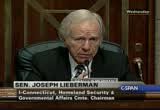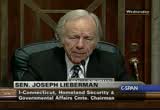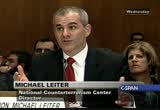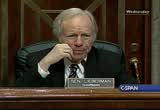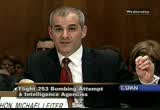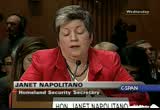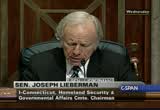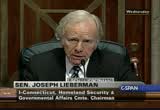tv C-SPAN Weekend CSPAN January 24, 2010 10:30am-1:00pm EST
10:30 am
what is good for us and force things we do not like down our çthroats. that is not represented it democracy. u!if the democrats can make a çcorrection, there is plenty of time for them to comew3çó back. host: there will be a bipartisan commission. do you support the idea? well i have the teeth to cut the deficit? guest: i think that is a good start. the commission is to report back before the 2010 election, not after. we need to deal with spending first before the commission looks at raising taxes in order to deal with the deficit. i think those are two things that could improve it and i think we will have a chance to vote are something that looks like that before long. host: do you support it? guest: i have a co-sponsor. i do not think this ought to be
10:31 am
used as a means to raise taxes without cutting spending. that is my concern. we need to have the commission report back before theç 2010 election to promote greater accountability. it will make it more likely something will get done. guest: how you structure that? -- do you structure that? guest: i have co-sponsored the because i believe you have to haveç everything on the tab. i do not want it to be used as cover for raising taxes and not dealing with the reckless spending we see coming out of washington, d.c. it is a matter of priority is and how you sequence this. i would like to see us start with spending first. guest: we talked about this throughout the morning, but looking at the polling that was done in massachusetts after scott boehner of's win, suggests that even people who voted for him want to see him reach out
10:32 am
and work with democrats. if democrats do as you suggested and they reach out, do you risk looking like the so- called party of no. ç if you do not reach back and shake hands? don't you have to do something with them if they ask? çguest: if it isw3 sincere, wee to meetç them halfway. we have seen some talk about it. i will tell you republicansç ae happy to work with democrats to try tou! find the battleground n important issues from health care to national-security -- -- find the middle ground on important issues from health care to national security. i think the press -- if the president would work with us, it would actually help his presidencyç to be more successful. he would have something he could point to as a success. as long as they persist in trying to do it my way or the highway and do it all by
10:33 am
themselves, when it is unpopular as health care, it is an albatross. i think it would benefit both parties and benefit the american people for us to find common ground. guest: çósenator grassley, or hatch, they were in the room for these negotiations. and they got up from that table. guest: they were told that any of your ideas are unacceptable and all republican amendments before the two senate gssrátees were voted down along party lines. there are some exceptions. but by and large the message was that we will do it ourselves and without you. and that led tjç the breakdown and those bipartisan negotiations. guest: you suggest there is no possibility toç get the two sis to agree on almost anything.
10:34 am
we are in a permanent polarized situation. guest: i hope what i do not think so. -- i hope not. that is not what the voters want. if they see something they do not like it, they have the power to change it by electing someone different. i am optimist by nature. i think if i did not see an opportunity to make things better, then i would not want this job. but i do, and i think i am more hopeful that this will actually occur. maybe not immediately. republicans are courting to continue to be in a disadvantaged minority through november, 2010. if the pendulum does a swing, we will have more of a balanced approach as a result. host: will you be in majority
10:35 am
this time next year? guest: i think that would be a difficult thing to happen. 2010 as a tough year for us because there are 18 republicans, 18 democrats up. the political and far it looks positive for us. in 2012, there are only eight republicans up and democrats have the disadvantage. it is more likely in 2012 than in 2010. host: ben bernanke, what is your prediction? will he go down in defeat? guest: i think it is fluid right now. i think there will be more senators who will speak up and say there will not support his re-confirmation for the reasons i said, that we need a fresh start. i think they can happen best with a new chairman. host: that sounds like he may be defeated.
10:36 am
guest:ç i may be hedging my be. -- my bet. if people like me are coming to the conclusion they cannot support his confirmation, quiet predict i am not the only one. i think it makes it more likely that his re-nomination will fail. i cannot predict. guest: any major piece of legislation will pass this year? if you had to say there was one thing. guest: we could pass a common- sense health bill throu. small-business health-insurance plans, medical liability reform, greater competition -- >> jobs bill? guest: that is what the voters are most concerned about. and what they see as job-killing policies coming out of washington, including this health bill.
10:37 am
there is plenty of room for tax cuts on small businesses, incentives that will help them hire people again. i think we can find common ground there, if both sides can meet in the middle. host: senator john cornyn, thank you for joining us on "newsmakers" today. guest: thank you very much. [captioning performed by national captioning institute] [captions copyright national cable satellite corp. 2010] q>> up next, a senate committee hearing on theç attempted christmas day bombing of northwest flight 253. and then details of the pentagon investigation of the fort hood shootings. after that, a town hall meeting with president obama in ohio. >> each year, the washington center brings thousands of
10:38 am
students to washingtonw3 to experience the workings ofnbq or government firsthand. it will discussç politics, government and their futures. ç"q&a, tonight at 8:00 on c-sp. >> stay, president obama delivers his first state of the union address to congress. -- on wednesday. this state of the union address, wednesday night. our coverage starts at 8:00 p.m. eastern, on c-span. xdyou can listen to the address live on your iphone with this c- span radio app. >> this past wednesday, the senate homeland security committee held their first hearing on the but -- and attempted bombing of northwest flight 253. this is about two hours, 40 minutes.
10:39 am
>> good morning and welcome to the hearing. as we all know on this past christmas day, 2009, are dual slipped through to the defense's -- abdultallab slipped through our defenses and boarded a flight from amsterdam to detroit over which he attempted suicide bombing. courageous and quick action by the passengers and crew prevented the deaths of 290 board -- to under 90 people aboard that plane and many more on the ground below. we were lucky, we were very lucky. because it is not in five years since the enactment of the 9/11 commission recommendations for intelligence reform, senator
10:40 am
collins and i decided last year to initiate a series of oversight hearings this year to examine how well these reforms have been implemented and whether it further -- whether further changes and all law, regulation, or implementation are needed to protect our country. that is the inquiry we begin today. but now, of course, we must carry out our oversight responsibilities through the unsaddling prism of the christmas day breach of our homeland defenses by the terrorists. .
10:41 am
>> it created the national counter-terrorism center to ensure there was a single place in the government that would assess it terrorism through its using the full resources and knowledge of the intelligence community. in 2002, our government's failures on 9/11 also moved congress to act on recommendations to create a department of homeland security to better cope with the threats our country would face in the 21st century. i believe these post-9/11 reforms have worked very well. the record shows that after the creation of the department of homeland security in 2002 and the establishment of the dni in 2004, there was not a terrorist
10:42 am
attack by islamic extremists on america's homeland for almost seven years. no one would have predicted that on september 12, 2001. so we have got a lot to be grateful for. some of the most successful defenses of our homeland have been truly amazing. although the details of these up, of necessity, remain largely unknown. two of the most impressive of those successful defenses occurred in 2009 with regard to azasi an dheadly. one of the most impressive cases was the zazi case. this was the most dangerous terrorist plot on our soil since
10:43 am
9/11, dangerous and the sense of the consequences it would have had and it was only stopped by -- it was only stopped by the brilliant work by our intelligence, law enforcement and homeland security agencies. been briefed on the details. everything worked just as we hoped it would when we adopted the post-9/11 the legislation. there was remarkable agility, brilliant judgment, total cooperation between intelligence, homeland security, law enforcement, both here within the united states and throughout the world. notwithstanding, these remarkable achievements over the seven years after the enactment of the department of homeland security and some of the extraordinary defenses which
10:44 am
occurred in 2009, the record also shows that in 2009, three islamic terrorists broke through our defenses, a man who murdered an army recruiter and little rock, ark. simply because he was wearing the uniform of the u.s. army. the doll house on who murdered 13 americans -- nidal hasan who killed 13 people in fort hood and abdulmutallab. there are clearly some things about our homeland defenses that are not working as we need them to. we need to find out together what is to win on and why and fix it. i know it is probably not realistic to promise the
10:45 am
i feel very strongly that that must be our goal. it is the standard that will guide our committee in this inquiry and the other we are conducting on the terrorist attack at fort hood. any recommendations that we make as a result of our inquiry. our purpose is to review the current state of our homeland security. through these cases and to make recommendations for reform that will get our homeland, america, as close as possible to 100 security% from a terrorist attack. -- 100% security from our terrorist attack frustrating,
10:46 am
infuriating, that this terrorist was able to get on to that plane to detroit with explosives on his body. he was able to do so because of systemic failures and human errors. our responsibility is clear. we have to find what systemic failures were and fix them. if the air administration or we and our tool operations find there are personnel of the federal to government who did not perform up to the requirements of their jobs, they should be disciplined or removed. as is clear from the christmas day attack which almost killed hundreds, the fort hood attack which did kill 13, and the 14th of the zazi plot that saved countless american lives, the decisions of public servants who work to protect us from
10:47 am
terrorists every day have life- and-death consequences. if we did not hold accountable those who made these human errors, the probability is greater that they will be made again. i have not called this hearing to knock down the new walls of homeland security that we build after 9/87. we have called it to repair and reinforce them so to better protect the american people from terrorist attacks. it is in that spirit that i think the witnesses, the director of homeland security, the director of national intelligence and others for being with us. i look forward to your testimony and your questions and answers. >> senator collins. >> thank you, mr. chairman.
10:48 am
>> every day, the men and women of our military, homeland security, law-enforcement and intelligence communities work hard to keep our nation safe. they serve on the front line of the war on terrorism and over the last year alone, their efforts have helped fort numerous terrorist attacks. -- helped thwart numerous terrorist attacks. but as the christmas day attempt shows, this must be strengthened. we dodged a bullet in the skies above the chart on christmas day. a mere fluke, and the state by the terrorist on that plane or a failed detonator prevented that attack from succeeding. the quick action of courageous passengers and crew helped spare the lives of nearly 300 passengers on flight 253.
10:49 am
we cannot escape the cold, hard, fax. terrorists have not relented and their fanatical quest to frighten our nation's citizens and to slaughter as many americans as possible. their tactics continue to evolve. attacks inspired by al qaeda's violent ideologies including those by lone wolves or those perpetrated by smaller, on coordinated cells are incredibly difficult to deal with. the threats posed by american enemies continues to grow. our nation's efforts to defeat them must be nimble, determined, and resident. -- and resolute.
10:50 am
this committee offers the most sweeping reform for intelligence communities since the second world war. the intelligence reforms and terrorist prevention act of 2004 did much to improve the management and performance of intelligence, homeland security, and law-enforcement agencies. the increase collaboration and information sharing has helped our nation present numerous attacks -- present numerous attacks. -- prevented numerous attacks. it is a work in progress. reform requires constant focus and attention to stay one step ahead of the threat we face. for example, despite the considerable improvements in information sharing, our intelligence community continues to rely on internal systems and
10:51 am
processes that are relics from the days before reform. these systems have not effectively surfaced intelligence information so that analysts and officials can effectively identify threats in real-time. the president has asserted, and i agree, that there was ample, credible intelligence on abdulmutallab to warrant his inclusion on the no-flight list. whether this failure was caused by human error, court judgment, outmoded systems, or the sheer volume of data that must be analyzed, we must develop systems and protocols to prevent these failures.
10:52 am
consider what i believe to be the most obvious error in handling abdulmutallab's case. after his connections were reported by his father, the state department should have revoked his visa. at the very least, he should have been required to report to our embassy and explain his activities and answer questions before he was allowed to retain his be sent. the state department has this authority. in fact, the intelligence reform act protect the department from lawsuit when its officials revoke ab said overseas. the state department failed to act. most disturbing is the state department is also pointing fingers at other agencies to explain this failure. the president is now directed -- has now directed the
10:53 am
intelligence community to determine which of the 400,000 suspected terrorists on the watch list have a valid u.s. visas. that response is not sufficient bentham the government should immediately identified and suspend the pieces of all persons listed in the broadest terrorist database operated known as the tide list until a further investigation is undertaken in each case. these of these up holders with suspected connections to terrorism should shoulder the burden of proving that they do not intend to harm this nation or its citizens. that they cannot meet this burden, we cannot take the risk of permitting them the privilege
10:54 am
of travelling to our country. immediately revoking the vises up suspected terrorists -- the visas of suspected terrorists is only the first step. this is done only in some airports now. what happens now is that confirmation only occurs when passengers have arrived on our land. there is no technological reason why this cannot occur. we did not choose this war. it was thrust upon us by terrorists who are determined to destroy our way of life. our counter-terrorism efforts must be tireless and steadfast. we must continue to build on
10:55 am
the intelligence reforms that are already in place to make america more secure. thank you, mr. chairman. >> thank you, senator collins. >> let us begin testimony with the hon. michael leiter. thank you for being here. >> it is my pleasure. this is the committee that was most instrumental in creating ntsb. i want to open with a assertion. abdulmutallab should not have stepped onto a plane on christmas day. the counter-terrorism system collectively failed and i, along with director blair and nepal to non-oil and others want to tell you and the -- knowledge, and others, we need to do better.
10:56 am
we have been reminded again how unceasing our enemy is and how committed they are to attacking the united states and how committed we need to be in protecting americans. to begin with, but like to take a rigid make a short rundown of the bombing attempt to give you a perspective of what we did mess. i want to start by debunking what has become conventional @@@@@ @ @ @ @ k >> and there was that this failure was just like 9/11. in fact, it was not. it was not a failure to share intelligence. instead, it was a failure to connect, integrate and understand the intelligence we have collected. terrorism agency has long known
10:57 am
about the threat of al qaeda, we did not correlate the specific information that would have identified abdulmutallab and capt. of that flight. more specifically, the growing characteristics of al qaeda and the potential of striking targets not just in yemen but reaching beyond to the homeland was missed. ui would also note that the intelligence community repeatedly warned about the types of devices -- explosive devices that were used in this attack and how they might prove challenging to screen.
10:58 am
despite all of that, and the overall theme, we failed to make the final connections. the last mile that linked the abdulmutallab to the spot. we had the information that came from his father saying that he was concerned that his son had in fact gone to yemen and that he was coming under the influence of on known religious extremists and he was not planning on returning home. we also had other information coming from other intelligence channels provided different pieces of the story. we had a partial name, umar farouk, but no single piece of intelligence that brought that altogether. nor to our analysts bring that information together. as of assault, as you have noted, although abdulmutallab was identified as a known or
10:59 am
suspected terrorists and his name was entered into our database the derogatory information that we associated with him at the time did not meet existing policy standards that were adopted in 2008 and promulgated in 2009 to be watched or placed on the no-fly watched or placed on the no-fly list. but let me be clear again, and all the information the u.s. had available to had been linked together, his name would have been watched listed in he would then none of these the screen limsts. and whether he would have been placed on the no-flight list would of been based on the existing strength and analytic judgments at the time. as i have already noted, one of
11:00 am
the lessons we have learned is the need to reexamine those standards for inclusion on those critical list before people reach our borders. finally, mr. chairman, senator collins and members, without trying to make excuses for what we did not do, because as up -- as i have made clear, we did not do things well and we did not do them right, i do think it is critical that we know some context in which this failure occurred. i thank you for your kind words for the intelligence community and law enforcement and homeland security in noting some of the successes, but we have to have more successes. each day we receive thousands of pieces of intelligence related to terrorism. . . of things each day, more than 5000 names each day that we review. every day, we place more than 350 people on the watch list.
11:01 am
although in hindsight, we can assess with a very high degree of confidence that abdulmutallab was in fact plotting, we cannot do that at the time. although we must and to -- although we must and will do better, we must recognize that there is no single bullet. as the terrorist threat becomes more nimble and multi dimensional, as illustrated by the threats we have seen over the last year, we have to have a multi dimensional, multi layered set of the fences of international cooperation, technology, military, law enforcement, to keep us safe as possible. with that, i will turn the microphone over to my other panel members. >> thank you.
11:02 am
it is encouraging that your cooperation is so profound. >> i am glad to be here to talk about this. the american people and you need to know what we are doing and what we need to do. thank you for inviting me to talk with you this morning. but me echo -- let me echo the words that abdulmutallab shall not have stepped on that flight bound for the u.s. the counter-terrorism system did not do its job. it is in large part my responsibility. i told the president that i and the other leaders of the intelligence community are determined to do better in the future. you heard from director michael leiter evidence and you would be correct in concluding that the system is capable of stopping this attack but it did not do so in this case for a set of reasons that i think we
11:03 am
understand and we are working right now to fix. i should make it clear to this committee that there is a lot of responsibility in this area. the system we have now has been largely created since the legislation in 2004. we should n but the threat is also evolving . i would say we have a good capability to detect and disrupt the sort of multipurpose teams that take months to plan, rehearse, fund, provide the logistic support
11:04 am
for and attack. but we are not as capable as we should be of carrying out the much more difficult task of detecting these self-radicalized citizens of the united states, europe, other countries like nigeria, who are given a very simple mission and advanced bomb to carry it out, or who plan their own attacks inspired by kide's message but not directed lie kide. last year we stopped zazi, and we stopped others. but we did not stop abdulmutallab. so we have to improve our intelligence system further so we can identify and stop these lone contacts with a minimum of communication and frankly with a lot more knowledge of how our system works due to the public discussion that has taken place. as the secretary will tell you,
11:05 am
we have to improve the active defenses we have, some of which depend on intelligence, but some of which cannot depend on intelligence. so what are the improvements we are making based on what we have learned? they fall into four categories. they are currently underway, but we will continue to refine them and work on them both in the short term and sermon over the long-term. number one is changing the way we apply these no-fly criteria so they are less restrictive, more flexible, while at the same time they continue to protect the civil liberties of u.s. persons. the no-fly criteria that we were working under on the 24th of december of last year had been arrived at by a bureaucratic that stretched across two administrations. it started in the summer of 2008.
11:06 am
they were implemented just before this administration came in and reaffirmed by this administration, and they were, frankly, too legalistic and rote process rather than having the flexibility to react to the situation which they really needed. we have fixed that, and that is very, very important. number two, i need to assign more clearly defined responsibilities for analysis and follow-up of the information we now have. frankly, we had a situation in which everybody was responsible for working. everybody had the dots to connect, but i hadn't made it clear exactly who had primary and seconder -- secondary responsibility so that when the crunch comes, they know who can't go home until the worked out at night. number three, we have the ability to adjust the resources as the threats shift.
11:07 am
as director leiter said, we had strategy warning of kide's intent to send -- problem where we also have active threats to american interests. we did not add more resources to ensure that both parties were covered. we need to do so and are doing so. we are adding resources immediately. fourth, you have alluded to this, we have to improve both the technical and human abilities to deal with this massive information that the terrorist research turns up. that is a tough task. although we have used a lot of technical tools in recent years, some of them are
11:08 am
outdated. we have a priority effort to reexamine those to make sure that we are doing with the best of what is available and are using outside experts as well as those that we have inside. these improvements are not years in the making. we are working on them now. we have already made improvements in the two weeks we have a press on for getting short-term ones done immediately. more importantly, we will continue to work them dinically -- dynamically over time. i have also convened an outside panel of experts that will review exactly what happened in the december case. we have done preliminary inquiries, but we need to take a more careful look, and also it will review the changes we are making to see if we are getting it right, to tell us
11:09 am
what we are not doing that we should do. the important, and i share your goal, mr. chairman, about the 100% goal that we shoot for, but we have to make it clear that we cannot give an absolute guarantee of identifying every single one of these terrorists. we need a system of offense and it was, go after them where we are, push our intelligence on all points, and then have defenses that are strengthened by intelligence but don't completely depend on it in order to defend our citizens, and we are dedicated toward pushing toward that 100% goal as quickly and with as much determination as we can. thank you, mr. chairman. i turn it over to secretary naacp >> thank you for this opportunity to testify on the terrorist attack flight 253 on
11:10 am
christmas eve. i am pleased to be here with my colleagues. as president obama has made clear, this administration is determined to find and to fix the vulnerabilities in our system that allowed this attack to occur. i would like to take a moment to explain and describe the d.h.s. role in securing air travel. first, d.h.s. is and can be characterized as a consumer of the united states government's consolidated terrorist watch list, which we use to help keep potential terrorists from boarding flights and to identify travelers who should undergo additional screening. within the united states, d.h.s. provides screening at
11:11 am
checkpoints and provide in-flight measures. outside the united states, d.h.s. works with foreign governments and airlines to advise them on which passengers may prove a threat and require security measures for flights inbound for the united states. t.s.a., of course, does not screen people or baggage at international airport. regarding the christmas day attack, abdulmutallab should never have been allowed to board this plane with explosives. the interagency to fix these vulnerabilities is well underway, and we are all working on it jointly. we welcome at the department the opportunity offered by the process described by admiral blair and director leiter to contribute to improving the federal government's ability to connect and simulate intelligence, and we appreciate the work that they have done and the ongoing relationship that we have.
11:12 am
we are also focused on improving aviation screening and expanding international partnerships to guard against a similar type of attack. i have submitted a longer written statement describing the various d.h.s. programs are at work to keep terrorists from boarding airplanes. but in terms of the d.h.s. role in this case, the bottom line is this. he was not on the no-fly list, which would have flagged him to be prevented from boarding, nor was he on the selectee list which would have flagged him for secondary screening. furthermore, the physical screening performed by foreign shortse in nigeria did not detect the explosives on his body. after the attack, the d.h.s. responded. we informed all flights of the situation. we increased security measures at domestic airport.
11:13 am
we enhanced screening for all incoming flights for the united states. we reached out to state and local law enforcement, air carriers, international partners and other relevant agencies to provide them the information they needed on the ground. in our report to the president on what -- on fixing what went wrong on christmas day, we have also outlined five other areas of action. first, as this incident underscores, aviation security is increasingly an international responsibility. that is why i dispatched deputy second lewden and other officials on a multicontinent tour about airline and airport security. this afternoon i will travel to spain to meet with my e.u. counterparts, and well discuss information technology and other related issues.
11:14 am
second, d.h.s. has created a partnership with the department of energy and national labs to use their scientific expertise to improve screening technology at domestic airports. d.h.s. will move forward in deploying technologies like we have now to improve the ability to detect explosives. t.s.a. has 40 machines deployed now, and we will deploy at least 450 more this year. our fourth, well and have strengthened the capacity of federal afe yeas law enforcement, including the federal air marshall service. and we will work with our interagency partners to re-evaluate and modify the way the terrorist watch list is created, including as mentioned, how names are added to the no-fly and selectee
11:15 am
list. i am glad to be working with leaders like admiral player and derrick tor leiter. in addition to what we have already done to improve the apparatus. i am grateful to the men and women of the department of homeland security who do so much every day to guard against attack. lastly, i wish i could tell you, with all of this ongoing work and all of these upcoming actions that there will never again be another abdulmutallab. what i can tell you is that this administration and the men and women of the d.h.s. are working 110% every day to minimize the likelihood of a successful terrorist attack against the homeland, and i'm proud to be with the department in that work. thank you for the opportunity to testify, and i look forward to your questions. >> i thank the three of you for
11:16 am
the substance and spirit of your opening statements. i do want to indicate to my colleagues on the committee that the three witnesses have made themselves available for a closed session with the committee immediately following the public session. if there are questions that are asked here that cannot be discussed in public session. we are going to have seven-minute rounds of questions. let me just two back to the post 9/11 period and to say what i think is common belief now, which is that our response at that point was to the fact that there was not information sharing going on. there was enough information in the federal system that we should have found and been able to stop the attacks of 9/11. that's a personal conclusion. but it wasn't, as we used the metaphor at that time, together on the same board so the
11:17 am
connections could not be seen. one of the great goals of the 9/11 commission legislation was to make sure that met fourth quarterally speaking, all the information came together on the same board so that it could be seen. there is so much information that is being collected by the intelligence and other agencies of our government that it is not enough to put it on the same board. we've got to create systems to find out how to connect the information that we have, either technological or human. as you mentioned, part of what emerges from the christmas day bombing case, there was intelligence information about al qaeda and the arabian peninsula involved with somebody named omar faruk, not
11:18 am
the full name. a father comes in and saysest worried about his son, oak ar true abdulmutallab. and there were intelligences about an attack, and the father indicates nigeria, and this didn't all come together. we live in an age where my grandchildren can go on their computers, go to google and search an enormous array of databases immediately. my impression -- and director blair, mr. leiter, you can respond to this -- at ntct you don't have that ability. you have separate databases from the intelligence community and the government, and you've
11:19 am
got access to all of them, plenty of sharing. but there is not a program, a search engine right now by which you can, by act or some automatic software programming, can have expected in this case that there would have been a hit or an alarm on abdulmutallab, mcguire, december 25. am i right? do we not have that capacity within the ntct? >> senator, we do not have that exact capacity, but i would note that over the past several years we have worked with folks from across government and some of the private sector companies that you would expect would have that technology. the answer is that is not an easy a problem as people would expect. i think we have some potential technological solutions on the very near-term horizon that we are attempting to implement within weeks.
11:20 am
frankly, i was surprised at the extent to which other agency searches weren't hitting against very critical data sets that might have uncovered this and then highlighted them for ntct and others. >> director blair, to you want to add anything to that? >> i would only amplify what he said, mr. chairman. the search tools that we now have depend on certain characteristics, and i don't want to describe them here, but they also have blind spots that don't allow the sort of google-like sort of idea that we have from our own computers. several of those shortcomings came up in this case, which we
11:21 am
can fix. i think that the other thing that i've learned from this is that almost all of our energy was focused on building these systems, getting together these search engines. we don't have enough of a testing regime so that we do the what ifs before we have one of these incidents, put partial information in, fix those and find those for ourselves. that continued self testing is going to be a great part going forward so that we can make some of these mistakes for practice before we make them for real. >> ok. you are with a sense of real urgency going now after improving what i would call the search capacity across the databases you have automatically to come up with linkages, correct? >> yes. and i would stress this is not a new problem. we have been working with it,
11:22 am
and we have not gotten to where we want to get, and we are trying to accelerate that now. >> one of the reports from the president said to assign cases, spected cases, for people to follow. that is a tough thing to do, so i would like to ask you to talk about it. presumably that requires -- at some point, somebody has got to be concerned enough about -- picking a particular matter out of the thousands of cases that you have every day to your watch list concerns. let's take this case. somebody would have had to say, based on a father coming into an embassy, we've to follow this. or behaved on the intelligence stream that said the al qaeda arabian peninsula was working with abdulmutallab.
11:23 am
what then? do you have the human capacity to assign people to chase these down and have a responsibility almost as if this was a police department and you were assigning a detective to pursue a case? except of course here it is not to try to find the murderer. the to try to prevent a murder from happening. what is our capacity to deal with this with better use of personnel? >> mr. chairman, i think your question is exactly right. we do a very good job at hunting down the threats when we know the a threat. the more difficult thing is deciding what is a threat in the first instance and hunting it down. there are two things we are trying to try to improve this. right now i have not had the capacity to do this in the way this needs to be done. we are going to expand the scale and the bread this of the thing we chase down. we have chased down those threats that come out of afghanistan and pakistan. we are going to be better at
11:24 am
chasing down those small bits of information that come out of yemen, east africa or north africa. two, the plan is to establish teams that have no responsibilities other than to do that. we have calling them pursuit temperatures for the reasons you identified, to find those small bits and hunt them down until we figure out what is going on or there is no other data out there to be applied to the problem. >> director blair? >> just for context, mr. chairman, i would cite two things, not by way of excuses, but by way of understanding. the only conversation on resources that i have had with director leiter in the weeks leading up to christmas was a conversation the week before on how we were going to allocate a $30 million cut in the office of the d.n.i., part of which fund the ntct. so the general fiscal climate
11:25 am
we were dealing with was one which was reducing resources to this. the second thing is the pressure on no-fly lists, as you all know, for several years before 2008 had been make them smaller. my cousin has a name on it and is getting hassled every time. you can tell as you read through the guidance given to analysts that they were expected to cast a very fishy eye on the inclusion of lots more names, and the pressure was in the other direction. shame on us for giving into that pressure. we have now greatly expanded the no-fly list from what it was on december 24 and have done a lot more of what is prudent, putting names on it just in case, and then take them off as necessary. but the pressure was quite the other direction, and as i say, i should not have given into
11:26 am
that pressure, but it was a factor. we have certainly changed that attitude, and we have to maintain that over a course of not just six years, but of 12 years and until this campaign finally ends. >> director blair, i can't thank you enough for what you have just said because it seems to me that in the process for deciding what watch lists people were being put on, we were using a standard that was, as you said, legalistic, a legal standard. in fact, the very words used, reasonable suspicion, come from supreme court cases that govern warrantless searches by police in the u.s. but we are at war with these people, and it just seems to me that if somebody brings some information to the u.s. government that suggests in any way that a person is involved in terrorism, it threes is
11:27 am
justification for putting them on a list that will subject them to secondary screening before they board a plane to come to the united states. it is not being used as a basis for arrest, certainly not for conviction, but this is a classic of the ongoing tension between security and liberty. i appreciate your admission here and your commitment to change this, and we were errink on the side of privacy. thank you. >> good intelligence is clearly critical to our ability to stop terrorist plots, and that is why i am very concerned about the decision to quickly charge
11:28 am
abdulmutallab in civilian court , because i believe that we, by doing so, have lost an opportunity to secure additional intelligence from him not only about his own training, but intelligence that possibly would allow us to uncoffer over plots that are emanating from yemen. we know that those interrogations can provide critical intelligence, but the protection supported by our civil justice system as opposed to the military tribunal system can encourage terrorists to lawyer up, to stop answering questions, and indeed i am told that with abdulmutallab, once he was m.r.i. andized and self
11:29 am
-- received civilians lawyers, that is exactly what he did. he stopped answering questions. my question for each of you, starting with you, mr. pliret, is were you consulted regarding the decision to file criminal charges against abdulmutallab in civilian court? >> i was not. >> mr. blair, were you consulted? >> senator collins, i have been a part of the collin rations which have established this high-value interrogation unit which we started as part of the executive order as part of the decision to close guantanamo. that decision was made as to whether a person detained should be detained as a case for federal prosecution or other means. we did not invoke the a.i.g. in this case, and frankly we
11:30 am
should have. we were thinking overseas. but that is what we will do now. and so we need to make those decisions more carefully. i was not consulted. the decision was made on the scene. it seemed logical to the people there, but it should have used this a.i.g. format at a higher level. >> madam secretary, were you consulted? >> i was not. >> mr. chairman, i think that that is very troubling. it appears to me that we lost an opportunity to secure some valuable intelligence information and that the process that director blair described should have been implemented in this case. i think the very troubling that it was not and that three key intelligence officials were not asked their opinion. i would like to move to another issue that i raised in my
11:31 am
opening statement. the facts surrounding the failure to revoke abdulmutallab's visa really troubled me because it appears that ultimately no agency considered itself responsible for this decision. the state department spokesman said, when asked why the state department did not revoke the visa, quote, because it is not our responsibility. it would be up to the national counterterrorism center to make the determination on whether to revoke a person's visa. secretary, part of the homeland act of 2002 gives d.h.s. broad authority to set policy and gives the secretary exclusive authority toish regulations to administer and enforce the
11:32 am
provisions of the law relating to counselor officers of the united states in connection with granting or refusal i visa, and said the skt will have the authority to review and refuse visas in cord annuals with the law. i want to get at the issue of why abdulmutallab was allowed to keep his visa, and who has the authority to look at those individuals listed on the broadest terrorist watch list, identify those who have visas, and take action to suspend those visas pending further investigation? who's job is it? mr. leiter? >> senator clips, i would admit that when i was told of that authority that i don't have, i was surprised to learn from the
11:33 am
state department they thought i did have that. i spoke with secretary clinton that the authority resides in the state department, and the ntct does not have any authority to do so. to your question about have we reviewed visas against the entire terrorist environment, we have. although the initial look was at the terrorist screening center, and in that number we have reviewed anyone who has a visa who has any information on them in tide, and we recommended whether or not that visa should be revoked. we have always been aggressive in applying the no-fly criteria to individuals who have a visa, using i would say a less legalistic standard in applying those standards. finally, i do want to know that beginning in the late summer, july of 2008, we began fully in conjunction with the state department, reviewing these
11:34 am
applications in a way that was far more advanced which was previously used by the state department. in conjunction the -- with the state department, the ntct now provides more advanced technology to screen these visas more effectively, and i am happy to speak about that more in closed session. >> thank you. trek tor blair, who's job is it? >> i think you are putting your finger, senator collins, on a characteristic of this effort that we need to tighten down with the strong enthusiasm for counterterrorism, the sense that we all have to be working on it. i think we did not drive some of these responsibilities as far as we should have as far as ok, everybody is helping, but is it at the end? i think you have identified one
11:35 am
more which we need to and are going to tighten down so that primary support responsibilities and ultimate responsibilities are made clearer. there is a tendency to say hey, i've got this new capability, let me help you, and we ought to do that, but it should not interfere with a clear understanding of who has the ultimate call. >> thank you. secretary, you do have some broad authority in this area. who's job is it from your perspective? >> well, under 428, the department has the legal authority to refuse the issuance of a visa. the state department has retained the ultimate authority to revoke a visa once issued. but i think all of us have a role, along with the state department, in measuring preexisting visas against
11:36 am
information or subsequently acquired information that comes into the system. i think that is part of the tightening that admiral blair just talked about. >> thank you. >> those are excellent questions. i want to make two brief points with regard to the questions you asked. the first is to say i share senator collins' concern both about the decision to try abdulmutallab in a regular federal court as opposed to a military commission, because in my opinion, he is a prisoner of war, an enemy combatant. i am also troubled that the three of you were not asked to be involved in that decision before it occurred. as chairman of the homeland security committee, i am troubled that the secretary was not asked to comment on that because there are obvious homeland security implications of a decision to try and
11:37 am
accused terrorist in new york, or detroit or washington, d.c. as we can see most practically and the request by mayor bloomberg for $250 million for additional security around the trial coming up. we are going to convene a hearing on this in february, which is the homeland security implications of a decision to try suspects in federal courts. the other point i want to make briefly, and i apologize to my colleagues, in focusing on the visa question, senator collins has put her finger on an port point. we want to come back and raise a fresh question here, which is whether the visa processing responsibility really ought to be with the state department. in other words, whether it
11:38 am
should be with the department of homeland security. really, this is not a matter of foreign policy. if some since it may be a waste of time of foreign service officers in determining whether somebody is eligible for a visa. the really more of a question of the law and homeland security in terms of the athlete of terrorism. we are going to come back and do a hearing on that. i am not inviting a response unless you wish one. as a matter of fact, i am going to ask you to hold it until my time because i don't want to intrude on my colleagues' time. i will call senators in order of arrival as is our custom. senator tester. >> thank the folks, director leiter, admire blair, and secretary napolitanoo.
11:39 am
there have been some concerns about the possibility of canada becoming a stop for terrorists trying to enter the united states. what i would ask is what do you think about these assessments? how seriously should we take these reports? there is a canadian television report regarding the efforts to actually bring terrorists into the united states through canada. could you tell me what you think of that potential threat and potentially what we are doing about it? >> senator tester, i think a lot of the answer to that question should come in the closed part of this meeting. >> that would be fine. >> i will say, however, that we have had extensive personal discussions with law enforcement and security officials in canada, not just in the wake of december 25, but also in preparation for the olympics that will be held there. >> and no problem. we can do that in closed session.
11:40 am
that would be good. our borders are only as strong as the weakest link, and we don't want to panic and shut down the borders. we need to have a balance there. but when folks can come into the country with explosives sewn into their clothes as happened on christmas means we have issues. the issues you folks talked about in your opening statements are critically important. i want to talk about the technology portion of this. secretary napolitano, you talked about this being an international situation as far as the screening goes. director leiter and admiral blair deal with the issues
11:41 am
before they walk in the airport, and we can catch them before they go through the screening. my question is, is the screening adequate in other countries to catch them? admiral blair talked about this type of explosive was known about. is the screening inadequate to catch the technologies that are coming down the pipe even when we know about them? >> senator tester, i think the point is that there are multiple layers of security that need to happen. no single one of which is a 100 % guarantee or a silver bullet. the layers when used properly prevent things from happening. once you get to the airport, domestically, that includes explosive detection machines, it includes the advanced imaging technology, law enforcement and dogs.
11:42 am
now internationally, the different. we don't control in that sense international airports or screening procedures. indeed, we don't even do the screening ourselves. what we do is if we have somebody on the tsdb list is advise someone. what we are doing is embarking on an aggressive international effort for all countries to lift their overall screening and airport procedures, because indeed there is great variation around the world. >> so what you're saying is that at this point in time -- and we are talking generally here -- the screening that goes on in foreign countries is not as adequate as the ones that go on here domestically? >> it depends on which airport you are talking about. for example, let's use the airport in amsterdam.
11:43 am
>> yes. >> the screening there is not dissimilar from the screening in the united states, and the screen that abdulmutallab went through is not dissimilar from what he would go through in many of the airports in the united states. what we have added and are adding domestically are more k-9s, more explosive imaging detection. other countries have resisted using some of those items because of other concerns that they have about privacy, for example. this incident, however, like i said, is serving as a catalyst to open that dialogue, particularly with countries that have a large through-put capacity of passengers coming to the united states. >> we are going to shift totally off this for a second while i've got you here.
11:44 am
we all know what has happened in haiti over the last seven to 10 days. it has been devastating, and that is an understatement. there is an issue about adoption of potential haiti children who have been left without parents. we've got about five families right now that have completed all the paperwork to get the children from haiti. and yet they are being held up. i need to get a commitment from you that the citizenship and immigrations services, an agency in your office, will work with my office to exe diet the ability to get those kids out. as you can imagine, the constituency is anxious. the a terrible situation. i just need your help in making this work. >> senator, you have that commitment, but may i give a longer answer? >> yes, absolutely. >> the public needs a greater understanding. the d.h.s. can work at many
11:45 am
levels on many things. coifing has been helping in haiti. ice has been providing assistance. the issue of orphans has been tragic. as we go forward and begin to learn the amount or number of casualties, the going to grow. >> yes. >> the something that needs to be handled very carefully, because there are many issues involved in terms of making sure that people -- i'm not going to say these five children, but other children that come to us are indeed orphans until all the search and rescue has been done or other families are located. there are other issues as to whether the adoptive parents in the united states are qualified for adoption under the applicable law. there are issues about the health and welfare of the children when they are brought to united states. many of them need to be immediately put into the care
11:46 am
of h.h.s. and checked over thoroughly before they can be moved. so we have formed a team. the the state department, it's us, it's h.h.s. as three of the big components to really work on this adoption issue, because we all want the right things for these children. this issue is only going to grow over time. >> that is correct, and i appreciate the opportunity to work with you and your group of people on this issue. i thank the chairman's indulgence for pulling off topic for a moment. we will be back. >> thank you very much for your questions, and particularly the last one, senator tester. we are all sharing your concern. next, senator burress. good morning. s s. the door -- senator burris. good morning.
11:47 am
>> it is important to recognize the contribution of the many agencies for making our homeland as secure as it is. see you all -- so you are to be complemented for the work that you have done. there had been numerous terrorist plots will cents 9/11, some of which have occurred in my home state of illinois. so we are grateful to you for that effort. and i just wonder -- several questions that come to my mind. is there a resource problem here? mr. blair, other directors, is there a resource problem here? >> senator, first of all, thank you for that kind words. i appreciate the kind words now but this is not an occasion that we are happy about in any way.
11:48 am
>> understood. >> problems with resources, we were facing cuts last week. with the directors help, those have been avoided. and in order to do some of the enhancement of the watchlist to make sure that when you have a umar farouk, you put that together with the aid umar farouk abdulmutallab. it does take more resources and director blair has been extremely supportive of that, as has the white house. >> we have moved money and people in the near term to put more on helping it ctc, and there will have to be some changes to the budget in order to sustain that. >> another question -- i just
11:49 am
wonder in our democracy, as i was watching the news on this issue about the detroit bomber, and watching media reports, i had some concern about what was being reported for future actions. i don't know what this will come up and closed hearing are not, but i was concerned when the media was reporting where the airports were going to be screening. it by my terrorists, what am i going to do? i am not going to be bothered -- isn't there some information that we need to keep classified in where the extra screening is going to come from, not to be knowledgeable to the general public? americans have a right to know but if we know them, then everybody else knows them. >> i could not agree more, senator byurris, and the defensive measures that we are
11:50 am
taking make it that much easier. the kind of hearing we're having this morning were you have responsible witnesses who think through what could be a classified and unclassified, i think they are absolutely essential. this airport is good or bad, i think they are unjust -- i think it makes the job of those working hard to defend us that much harder for that much more -- i just wish people would shut the hell up. >> thank you. [laughter] it makes sense to me because that was my immediate reaction when i see on this list on what airports would be now putting in special screeners. other questions that might not be answered here and i might not be able to attend a closed session because i have to
11:51 am
poseidon very shortly but i am concerned -- i have to preside very shortly, but i am concerned about the techniques used by the terrorist. i did see a movie just recently coming back from china, a movie on the plane, mr. chairman, and i don't know of anyone has seen that movie. it is about the terrorists and how they were going to set bombs here in america. i just hope that we are anticipating all of the various processes -- one time it was issued. this time it's underpants. what will it be the next time? and i am pretty sure you all cannot fix "-- disclose this at this point, but please disclose it for the record and the are closed hearing. what are the techniques that you are assessing so we can be on
11:52 am
the offense, as you said, director blair, but we have to be on the offense in this regard. and i am sure that you are but i've just want to reemphasize that, because i can say for the record, i think about the small towns across america. i was a terrorist, i would not go after chicago or new york. you know where i would go? i would go to my home town of some trolly up, ill. centraliz -- centralia, illinois. is there a comment? >> yes, senator. one of the criticisms that we've talked about among ourselves is being reacted as opposed to
11:53 am
proactive all the time did you have to be proactive and fix what went wrong. what you have identified the problem, had tried to fix it. but we need to think ahead to be proactive. that is why, we have entered into this agreement to get some of the best scientists in the world in our national labs thinking ahead about the next generation of screening technology and what it could show us. the other thing is the threat that is constantly are evolving center. -- that is constantly evolving, senator. i received very little information about u.s. citizens that were set -- were themselves radicalize to the point of terror. that has changed over the course of the year. director leiter has already talked about the emerging threat out of yemen. there is a constant evolving environment that we have to deal
11:54 am
with, and be thinking ahead of. the challenge for us is a challenge at this table and four others, i challenge for the congress, i challenge for our international partners, is to always be thinking about the next iteration that is being conceived. >> mr. chairman, one quick point. i would like to comment on something that the ranking member collins made in reference to where this person would be tried. i understand that intelligence was gathered from this person prior to him given his rights. i don't know whether or not that could be disclosed to alleviate some of the anxiety and reference to weather route -- whether or not we were able to get any of permission from this young man, which i understand there was substantial
11:55 am
information acquired prior to his rights. >> thank you very much, senator burris. senator mccain. >> i thank the witnesses for their continued service to this country everyone knows the christmas bomber, a person buys a ticket with cash, one way ticket, his father has already warned the cia, the series of missteps taken place which led to this near tragedy. i thank the witnesses for their candor and forthcomingness about this that your spirit president said, "if for immediately made it public that i will hold my staff, our agencies, and the people in them accountable when they fail to grow -- to hold
11:56 am
their -- to perform at the highest levels peaky who has been held accountable? i will be lent to you, mr. leiter. as anybody been fired transferred? has anyone received a letter of admonition? has anyone been put on leave? go ahead. >> we are conducting internal reviews to determine whether or not any of the should beeper feet -- pursued. >> how long should it take? it's fairly clear what happened, isn't it? >> many backs are not clear. i would correct the record on a couple point. he did not walk a one-way ticket. he bought a round-trip ticket. the fact that he use cash is in africa completely and utterly -- >> that was in copenhagen, not africa. >> no, sir, he bought that ticket -- >> you are defending that we should not have found -- we should not have been alerted to this individual, sir --
11:57 am
>> sir, i apologize. we are reviewing all of these individuals and the president is reviewing my performance as well. >> admiral bellaire? >> you when i haven't -- you and i have a navy background. the first investigation as a safety investigation to fix the parts of the system. the second is the accountability part of the investigation. >> it has been miky experience that the captain is relieved immediately. >> the captain is sometimes relief and sometimes he is not. >> until such time as he is cleared. i would be glad to go over naval history with you. my question is, has anyone been held accountable? >> we are doing investigation to make sure we do not hold them
11:58 am
accountable based on bad information but accountable on what the standards that they were expected to board formed to work. and that is under way as i said in my opening statement. the system was capable of doing this. i personally have a large degree of responsibility f i don't feel good about it, and i am fixing it. >> i wasn't asking whether you are philadelphiaing it or not, admiral blair. so far it has been several weeks, and no one has been held accountable. madam secretary? >> as you know, senator, we do not prepare the no-fly or terrorist list, and we don't do the screening at interpret airports. however, i am the secretary of homeland security, and i think i share responsibility for the enterprise that has to happen to prevent this from happening again. >> i thank you, madam secretary. i understand, admiral blair, that in response to senator
11:59 am
collins, you were not consulted as to what venue the christmas bomber would be tried in, is that correct? >> that is correct, yes, sir. >> how about, mr. leiter? >> no, i wasn't. >> secretary napolitano? >> no. >> so i i guess i have to ask your opinion, admiral blair. should the christmas bomber be tried in civilian court, or should it be under military tribunal? since they wouldn't ask you, maybe i should. >> i'm not ready to offer an opinion on that in open session. we can talk about it in closed session, senator mccain. >> mr. leiter? >> senator, i honestly don't have a position. i have been fully engaged in trying to fix this and have not engaged in where he should be charged. >> classified information indicates that the christmas
12:00 pm
bomber was providing information that was necessary to try to crack this case, and when he got a lawyer, he immediately stopped that information. now that is according to public documents. i do not have any classified information. if that is the case, i think the a terrible mistake. i think the a terrible, terrible mistake when the pretty clear that this individual did not act alone. admiral blair, in your testimony before the committee, you stated you would exercise your authority to the fullest and withhold judgment on whether the intelligence reform act provided the d.n.i. with sufficient authority. now can you share with the committee whether you believe that d.n.i. has sufficient authority to manage intelligence issues that affect america's public safety? . . has this job
12:01 pm
continues, it has been five years now cents the director of national intelligence was established. i find that you discover new things that you have to fix as you go along. this incident is exposing some of those. the authorities of the dni heretofore were to be able to make the big pieces happen. there was lots of sharing of the formation in this case. what we're finding is some individual pieces in which i think more of a party may be required. -- more authority may be required. i do not know quite yet, but the authority m by congress had been important to make
12:02 pm
improvements happened. >> i thank the witnesses. mr. chairman, i find it mr. chairman, i find it interesting the top individuals were consulted on a decision whether to put the christmas bomber into civilian court or into a military tribunal. i think whoever advised him -- i think his decision was a terrible mistake, which could impact our ability to defend this nation. i thank the witnesses. >> i thank yous, senator mccain. center in sin? -- center in san -- sesenator ensign? >> who made the decision to mirandize the prisoner?
12:03 pm
>> it was made by the team on a charge of the scene, with consolidation in the department of justice. >> how high up did this go? does any of the rest of you know? >> no, sir. >> ok. secretary impala town of, -- the polish town of -- napolitano, this had to do with the pieces and we understand that the state department, i guess, director lighter, you talked about that you did not know that you had the authority or did not have the authority -- >> i did not have the authority. >> has there not been a case in the past were someone brought to you -- and other words, have we not rejected any basis? >> the state department has the authority to revoke the visa. >> what i am saying to you is,
12:04 pm
has no one in your organization brought you a case where you thought that there should be a visa rejected, where you actually found out that you did not have that authority before the christmas day bombing? >> we routinely provided intelligence to the state department to make that decision. >> that is not an answer to my question. somebody -- in other words, somebody who is within your organization, they have information. this person should be rejected. did you not then make a recommendation to find that you did not have the authority before that? has no one brought that information to you? >> the spokes person for the state department was simply confused and no one in the state department who works these issues as we thought that i had the authority to revoke these pieces because i do not. >> try to understand my question. is someone in your organization bringing you have permission about somebody who should be rejected, okay? >> no, because no one believes
12:05 pm
that i have the out party to revoke visas. >> they know that already. you did not know it, but they know it. >> i'd joke with secretary clinton. i did not realize i had the authority because clearly i did not. it was only the state department spokesman about where that path party late. -- a pauthority lay. >> this has been brought up about who is responsible for this colossal failure. and business, you understand that there is not one person responsible for certain decisions, if there are several people, then no one can be held accountable to no one makes the decision. it has to do whether it is of these a rejection of whatever, no one feels like that they are actually accountable. it goes back to what senator mccain was talking about. if there are all these people
12:06 pm
accountable but no one person accountable, the decisions are not made and people really do not know who is supposed to make the decision. is that being addressed in this whole valuation process of what went on? >> senator, i guess, in a variety of ways, but admiral blair explain that one of the things addressed is who has the responsibility to follow up on different lines of intelligence as they come in. >> and so are we going to have a clear set up this person is responsible for making that decision -- is everybody going to know what they're supposed to do and what they are not supposed to do, is the best way to answer that, and when will we have all of those procedures in place to where everyone knows what they are supposed to do and not supposed to do? >> we have 30 days that the president has established to
12:07 pm
have anything from executive order down to the intelligence community directive, which i would sign, or similar off authorities like secretary to paul a ti the polish townnapoli. >> in any case like that, that is a guarantee from you. that that is not going to happen in the future. this will be convened. from what i understand, you will only use interrogation techniques that are approved and the army field manual. is that correct? >> the type of interrogation techniques will be will be calculated by the purposes for which we want to make that
12:08 pm
information available, whether law enforcement or intelligence. if it is intelligence, then, guess, the techniques that are in the army field manual will be used by the interrogator. >> and as public, the army field manual. this administration to stop using any type of classified -- so that terrorists can basically trying to the interrogation techniques in the army field manual since they are public. but if we use classified ones, keeping the terrace guessing what they are going through, it would be hard to train, would you not agree? >> the experience that we have is that it depends on the scale of the interrogator. and we have the best interrogators. >> that does not answer my question. that terrorists are allowed to trade to this because it is a public document, the army field manual was a public document. >> but terrorist know what the
12:09 pm
techniques are, but -- >> but if they were classified, they used to use classified techniques, it would be harder to train to it. >> i don't think it would make a difference. >> why did they use classified techniques before? what you think that through our intelligence committee, they use that if they did not think it was superior to the techniques used with the army field manual? >> we have looked at that quite carefully, senator, and we do not know whether that same affirmation that was gained through extrajudicial measures could have been obtained without them. >> i guess that is something we will have to disagree on. one last point. you made this comment that i thought was stunning. whoever it was a was more concerned about what folks were thinking overseas -- you even use the word duh when you talk
12:10 pm
about trying this person and civilian court and to mirandize this person. can you further explain what you're talking about, the administration concerned more with people overseas and what their opinion of folks overseas was? >> that was not the context in which i made that word. can you tell me -- and you read me a little bit about what that was? it had to do with our being able to pursue both the threat to united states coming out of yemen and being up to presume to violent extremist activities or terrorist threats within units appeared we needed to be able to do but that the same time. >> but this was in response to whether or not he was going to be tried in civilian courts. that is when you said, we were
12:11 pm
more concerned about what they thought overseas. and you even -- >> let me think back to that. i said that when we were thinking about -- when we put the hig to gather, we were thinking about terrorist captured overseas. we did not think about the case in which a terrorist was apprehended, as this one was, in the united states. we set up thought of that. we should automatically applied the hig and we will not. >> i was thinking that we could run the transcript of the hearing for the use of the were ord, duh. senator cockburn is next. -- coburn is next.
12:12 pm
>> thank you for your service. you have a tough job and when things go wrong, it is our job to help you figure out how to get it back. and i think you're all dedicated to doing that. i am going to ask a few questions. at work with my staff to make sure that i stay within the bounds of what i can ask your. i will wait until i thursday meeting in the intelligence committee to finish it. a couple of questions for both director blair and director lighter. the intelligence community has been largely consisted in noting that had all the pieces of the intelligence been connected, this individual what it met the criteria for watchless. had all been put together, he would have met the criteria. there have been inconsistencies about whether he would have been put on the no-fly list. used say that it would have been determined by the strength of
12:13 pm
the analytic judgment. but officials say that he would not have met the criteria for no-fly or selectee. that is what they have reported to me. can you explain the criteria and whether not the information would have written -- risen to the level of no-fly for selected? >> id is not an easy yes-no question. >> by a understand that. that is why i ask the question. >> it really comes down to where he would of been placed, select the or not apply, on what the analytic judgment was at that time. so looking at the signals intelligence and looking at what the father said, you put that together and the question is, with the zero analysts have said we have a potential al qaeda in the arabian peninsula opera to, all we have an opportunity may be boarding an airplane to use a suicide bomb, or this individual was involved in plotting around
12:14 pm
december 125 to attack the united states. on the purse, he would be selected but not now apply. on the second, he would be no fly. it's easy to see that he should have been on the no fly. but it would have depended on what the analysts said, putting what the analysts said, putting the i think, from my perspective, the right answer, senator. we should not try to parse it so closely. >> i agree. >> we ought to have standards that allow a greater degree of flexibility. you do not have to be able to predict exactly what an individual will do. if he has a certain associations, it is a clear answer. and that should be no-fly. >> we ought to err on the side of caution. is it not true that there was a
12:15 pm
lot of political pressure because of so many people on the no-fly list and the names that we actually reassessed that in the recent past and made it harder to put people on that list? >> that is absolutely correct. >> director, in your testimony today, you said that mr. abdulmutallab was identified as in known or suspected terrorist. -- as a known or suspected terrorists. the derogatory information as a seated with him did not meet the existing policy standards for him to be watched-listed, let alone be placed on the no-fly list. can you explain how someone who you have said was identified as a known or suspected terrorist, and about whom you have required by credit data, this not meet
12:16 pm
the criteria for the watch-list? yes, senator, and i want to make clear at the beginning that we made a mistake in not -- and not associating all of that information -- and at that point he would have been in the terror screening data base. we have a not insignificant number, roughly 100,000 individuals, who have some association with terrorist groups. that may be family members or the like, or they may have lower-level derogatory information grid that is simply lower than what was adopted in august 2008, and promulgated in 2009 for inclusion in the official watch list. it was simply a matter of the data that we associated with them, not meeting that hires that it -- status. >> secretary napolitano, thank you for your service. i am concerned with what is going on at tsa, and i refer you
12:17 pm
to an article by mr. -- in the "wall street journal was "about bodies gainers the "wall street journal" about body scanners. have you seen it? >> no, i'm not. >> windy ig looks at what the tsa is doing in terms of screening techniques and equipment, we have a failure to meet your own standards as we install the equipment. i would caution and i will have this conversation with you probably based on the information we have looked and gleaned from ig the reports and the experience that we have seen that as we respond to the public outcry for us to do more that the potential to waste a ton of money on something that is not going to be qualified to actually change the outcomes of this past december 25, and so i just raise with you that i am highly concerned about that. i also was a medical doctor and
12:18 pm
-- and highly concerned about the exposure we are going to put people to and highly concerned that the technology that we have today would not have stopped this even if we have had full body scanners in use. and we would not have. and i would love your comments. >> without commenting on the "wall street journal" article that i did not read yesterday, i can say with respect both through diego and ig report on scanners -- both through a gao and ig report, they were looking at earlier iteration of technology. it has evolved rapidly over time, but we're continuing to push the technology. that is why we have asked not just our department but the department of energy and the national labs to get involved. from the objective evidence, the scanners that are being deployed now clearly give us a better
12:19 pm
chance of picking up, be it metals, nonmetals, powders, or liquids, that somebody may be able to eat -- may be trying to get onto a plane. >> externally. >> we can talk in closed session about that, senator. >> based on the analysis of- staff on operational testing and screening technologies, i will send you a follow-up questions. and if you can get those back to me quickly, i would appreciate it. >> we would be happy to do that. >> thank you again for your service. >> thank you so much, senator coburn. >> thank you for having this hearing and a want ad my welcome to the witnesses that are here. i have been concerned about privacy and civil liberties in
12:20 pm
all of this. as president obama has made clear weaknesses in our characters -- counter-terrorism is systems and human errors have created gaps in our nation's defense. it is vitally important that we address these gaps quickly. we should not sacrifice our principles nor undermine our long-term strategic efforts against al qaeda and other terrorists. i would like to make two 0.3 per, congress working closely with the administration must protect privacy rights and civil though it -- civil liberties while trying to improve our nation's defense. second, we should be mindful that screening technologies and different procedures of one
12:21 pm
cannot ensure the safety of our flying public. i believe that we should enhance our international partnership, use imagination and risk-based thinking in exploring potential threats, and give our security were forced a range of tools, training, and the support it needs to protect the american people. secretary napolitano, your tas -- you are tasked with effectively putting up the screening consistent with civil liberties. how involved will dhs's civil
12:22 pm
liberties offices be with technology such fault -- such as full body imaging is this point more widely? >> they are involved right now and have been involved from the beginning in terms of how we deal with privacy and some of the objections raised, particularly with respect to the advanced imaging technologies. no, i would generate -- i would reiterate that the people are not where the screening is done, so there is a great deal of privacy in that regard with respect to individual identity already built into the system, but even as we move forward, we have our office of privacy and the office of civil rights and liberties engaged in the process and the decision making. >> director blair and director ligheter, it also requires your
12:23 pm
organization to improve technology related to intelligence and to enhance watch listing capabilities. unfortunately the privacy and civil liberties oversight board, created by the intelligence reform act to protect americans' privacy and civil liberties, has not been set up. my question to you is how will your agencies ensure that corrective actions and response to the christmas they plot take privacy and civil liberties into account? >> senator, let me say that i think that that panel should be manned up and started. it would provide a very valuable service. we do have our civil liberties
12:24 pm
and privacy officer very much involved as we consider the changes that i described in my testimony, but i would take your question one of the direction, and that has to do with families and the personal effect of what we have been talking about. we've been pretty much about standards and regulation and screening and so on. the chairman introduced me to members of the families of some of the 9/11 victims before this hearing, which reminds us of the real people involved in this, not just big bureaucracies. i am also reminded that it was a father who came into the embassy had talked about his son that he was worried about in yemen falling under radical influence. we know that last fall there were five young men from northern virginia that went back to pakistan and with their families that came in and tell them about them so that they could be identified.
12:25 pm
while we talk about all the responsibility of government and everything we're doing at the bureaucratic level, concerned about families, that is a key part of keeping ourselves safe. we should not either under rate or neglect, it is a very proper emphasis. when we are dealing with families, we need to rely on their help and make sure that we're not violating their civil liberties that they expect as americans. >> senator, i fully agree with the view that we have to have civil liberty as a central tenet and all of this. the director included four individuals, one of them as a civil liberty expert. the one thing that i would note is that it is very easy for me to recommend secretary napolitano to put everyone on
12:26 pm
the watch list on the no fly list. there are enormous and unacceptable cost to doing that. what we need to have is an agreement among the executive branch and members of congress about what the promise -- proper balance is. there was a balance that was struck previous to december 25, and frankly, we are now being told that a different balance should be struck. i am very eager to engage in that discussion with this committee and other committees to make sure that we have the right balance because i do not want to be here after the fact again saying, if only we could have done this. >> director blair and director leiter, dni had not completed their information sharing and firemen privacy policies.
12:27 pm
dhs has developed its policy. what is the status of dni and nctc developing a policies? >> i am not quite sure what policy that refers to. all have to check and get back to you. but we're very vigilant about getting those policies out. let me find out where the shortcoming yes. -- where the shortcoming is. >> it is one consolidated policy. and in light of these events, we wanted to understand what the rules are that we are applying. >> thank you. senator levin, welcome. >> i welcome to our witnesses. apparently someone at dhs plan
12:28 pm
ned mr. abdulmutallab for additional screening what's the plan was in flight. what triggered that? >> let me explain the process. customs and border protection, when it gets the passenger list, pushes out to the immigration groups known as the aepe, anyone that appears on the terrorist watchlist or on the no fly list. the no fly list is a list given to the carrier, and basically is says do not but the sky onto a plane. the terrorist list is to inform the airport or a foreign government that you should put this person into your secondary screening whatever that happens to be. there is other information that customs has that involves
12:29 pm
whether that person should be questioned before they are admitted into the united states. admitted into the united states. it is the difference it is the difference between whether they should be allowed of a playing, which is a national different standard -- >> this is an automatic process? >> yes. versus is there other information when they are here that should be explored before they are emitted into the united states. >> this was a regular routine process. >> yes, and based on that, at that time, the information on the list that would have led to the state department note was something that would have pursued when it got to detroit. >> was your dhs agent in amsterdam, the he had access to
12:30 pm
that same information? >> no. he has access to the no-fly in terrorist watch list. >> should he not have access to the tyde list? should they not have access to that list? >> senator, let me if i might take that in two bites. one, with respect to that particular portion of the state department list, that listed him -- the p3 b-, we have changed that in the light of december 25, to push that ford like the no-fly list or the watch list. the entire tied list includes people -- tyed list includes people who were bringing in the wrong type of ham across the u.s.-mexico border.
12:31 pm
the types of understanding we need to have with the congress is where is congress and done? the staff, the resources, etc.? but those questions are domestic. >> the information that was pushed forward your immigration folks here in this case now is being pushed for it to your agents in other cities? is that which you are saying? >> so that this ban weapons subject to extra inquiry in amsterdam if this had been pushed forward. >> yes, sir. >> great britain did not allow this man to have a visa. do we share information with great britain and other eu countries as to who is on their list? >> we share some, but that is one of the reasons why we have embarked on an international efforts, because that information sharing needs to be
12:32 pm
tighter than it is, more real time that it is, and more complete than it is and is complete air environment. >> and to clarify, he was denied his visa for non-terrorist reasons. the british did not have information that he was associated with terrorism and other than that which we talked about and signals intelligence. >> but we are working out arrangements with other countries to share in affirmation about people who should be on watch list. >> absolutely. >> how many people were recommended for all watchlist, the way he was by our embassy, that were not added to the watch list in 2009? >> i will have to take that for the record. it is quite routine that this field makes a blanket recommendation for his inclusion and all levels of the watch list, and then they apply the standards.
12:33 pm
>> i just want to know approximately how many people were recommended to go on to the watch list by our own people in our embassies that were not added to the watch list. >> i'll take that off the record. >> you will have the approximate number. all right. how many that were on the watch list last year approximately were allowed into the country? the boilers that were on the watch list? a very significant number. just to give you a snapshot, it is approximately 400,000 names spirit out of those, only 14,000 were selectees, and only 4000 of those were no flight. of very significant number, if they had traveled, they would add that met with secondary inspection. -- they would have been met with
12:34 pm
a very secondary inspection. a large number to eligible to come and whether or not they were ultimately turned away at the border. i cannot give you that number. >> that is instinctively troubling, is it not? >> senator, in one way that it is. and that goes right back to the standards, what are the standards? to love what we have too high aboard -- of far -- if we have too high of bar. >> we do not know how many people came into the country you are on the watch list. >> when people are on the watch list, we have made the choice that we want them in the country for some reason or another if they come in. >> that place that we had been required to keep abdulmutallab off the plane in down from the
12:35 pm
u.s. homeland. he would have the ban on the no fly less. however in the neck section of the report on the visa issue, the report acknowledges that mr. abdulmutallab's the sum might have been revoked it had been successfully watch listed. -if his visa had been revoked, e would of been prevented from boarding the plane. is there not inconsistent tcy? > no, sir. for people who have had their pieces for a vote, this may not be known to the people who put them aboard the aircraft. not only must there be said be revoked but they must be put on the no fly less. >> and that is not automatic. >> i would be happy to talk about it in closed session. >> that is a classified question as to whether someone has to be
12:36 pm
set is revoke is automatically put on the no fly list? not the process. is that the goal? is that a goal? >> the goal is to make sure that anyone that does not have to be said does not get on the airplane. >> senator camccaskill. >> this may not be the right witnesses are the right committee for this, whether justice our armed services, it may be the armed services committee, but the decision as to where terrorist that try to do our country on, where they are tried and process. i want to understand what the president was before december 25. there is no precedent in this country that anyone has ever been apprehended on our soil for
12:37 pm
a terrorist act and immediately got into the military system. is that correct? do you know? >> i think the right witnesses are from the department of justice. >> my understanding that a number of terrorists have been prosecuted in civilian courts in this country and that there were a couple under the bush administration that ultimately were taken the military court but after they were in it -- were initially arrested and arraigned in our civilian criminal court. what i am trying to figure out is, the process here. and if we have got a process. my understanding, mr. blair, earlier you testified that you were not consulted about the decision about whether or not this terrorist was going to go to a civilian court or a military court for some marc >> i was not consulted with the high interest interrogation room was deployed so that the
12:38 pm
questioning of abdulmutallab would be admissible in federal court order was being exploited for intelligence purposes. that might be related to where they would be tried, but not exclusively. we would like to be able to do both. we would like to get the information that would help us for intelligence purposes and had evidence that could be used against the person in a federal court. if we have to make a choice, then that ought to be made at a higher level with all the considerations you are talking about. >> my sense is what the american people want is for our military and our intelligence and our law enforcement community to have all the tools possible to get both good information and justice. >> exactly. >> all the tools are important but we are going to lose the ability to use those tools that
12:39 pm
we do not reassure the american people that there is a process in place and that these decisions are being made with the right people in the room. and i do not need to be derogatory to my friends at justice, but at that experiences in my life for the fbi takes over and nobody can talk to them. they just take over. and what i am worried about, can we reassure the american public that at these moments of decision, and it is my understanding also that the suspect was not mirandized for a long period of time. >> not for the initial interrogation, that is right. >> and the reason is first of all we did not need his confession or a statement because we have plenty of witnesses in terms of prosecuting him, and we had an opportunity to get more actionable information and intelligence by not mirandize in him. >> the decision was made on the
12:40 pm
scene, the interrogation was done and the decision was made on the scene again that evidence ought to be taken for trial after consultation, which was not complete. yes, basically, that is what happened. there said in a wider process -- there should have been a wider process than they made on those narrow grounds. . if the two of them work together, we can punish them the way the people expect them to be punished and we can get good information. these are not mutually exclusive goals. because we do not have enough information, people are assuming the worst. that we are immediately calling a public defender and saying, we want to make sure that you will
12:41 pm
not say anything that will incriminate yourself. i know that is not happening. i have been around too many interrogations' to know that coddle is not the word that would come to mind. i think we are failing in explaining to the american people how this process is working, and i would certainly ask you, secretary napolitano, and all of you, in your high- level meetings to discuss this process of the decision making at the point of apprehension. if we are going to go down the path of military custody -- we have never done that before in this country -- and i think we need to flesh that out. and even know there are a lot of things we cannot share with the american public because it will hinder our ability to catch the bad guys, there is a process we can share that they will understand, that everybody wants the same thing. we want to catch these guys, and
12:42 pm
we want to put them away were they can never heard anyone for as long as we can possibly do it. in some instances, we want the death penalty i think we need to be very clear that we are on the same goal here. this goal is to unite our -- this goal should unite our country instead of divided. it is being used to divide our country because we do not have information. the remainder of my questions are for a closed session. >> we are going to do a quick second round and see if we still have time within the general commitment of time you had given us. the statements that you made, admiral blair -- senator carper? though againging, you remain agile.
12:43 pm
why don't you go ahead and ask your questions. >> i know many of you very well. i know you by reputation at least. you handle yourself well. appreciate, not just your service, but your responses to us. in my old job, a job that secretary napolitano and i shared, one of my carnival principles was like focus of excellence in everything we did -- one of my cardinal principles. i used to say of my cabinet, folks in the governor's office that is not hurt -- it is not perfect, make it better. my family and i traveled onside the countries over the holidays. i had a chance to see tens of thousands, maybe hundreds of thousands of people moved in and out of this country from all directions, going through security, checking their bags,
12:44 pm
being ticketed, having ids checked again and again. and i thought, my god, what a challenge to try to know all these people are, to make sure they are with a say they are, to make sure the do not have something elsthat will harm somebody else in their luggage. it has been over eight years since 9/11 and we have been facing these challenges every day since that time. and we have been lucky, but we have been smart. but we are not perfect. and we need to be as close to perfect as we can be. you know that and i knew that. our job here is to conduct oversight, to point out -- to help you point out what you have not done well and to find out what you need to do differently to reduce likelihood that we will have another guy with
12:45 pm
something in his shoes or his underwear coming at us with the intent to do harm. one question i want to ask you is what do we need to do differently? we spent many a day together with the 9/11 commission sitting right where you said giving recommendations and ideas. we acted on almost all of them. we find it pretty well most of them. among the mistakes that occurred, one, when a father came into our embassy in nigeria to report that his son was going the wrong way, whoever took that information down, as i understand it, may have passed along information with the name of the person misspelled. and i am told that created some problems within the intelligence community and made it more difficult for us to check or connect the dots.
12:46 pm
i understand that the idea that somebody was using cash to pay for an airline ticket coming out of nigeria, frankly, they do not all have credit cards. the idea of using cash may not be that much of a strange thing. the idea that this person had no luggage, coming out of africa -- it was a round-trip ticket. i can understand how in nigeria that may not raise [unintelligible] we have a good idea of how to stop guys trying to blow up a plan over detroit. the technology is there. we need to make sure that the
12:47 pm
people who need to use the technology can use it properly. and we do to help? >> thanks for your comments. i think there will be budget implications. my view is, and i want to go back to a point that the senator asked me, the privacy vs. security issues that kids raised in connection with a whole body scanners. we do look at privacy issues from the get go. ultimately, the question is, what do we need to do to protect the security of the flying public even at the take to deal with privacy. security is the number one concern. one thing that this committee
12:48 pm
and the congress can't do in addition to that is setting public expectation. we are doing and will continue to do everything we can do to prevent this kind of yvette from ever happening again. from whatever source anywhere around the world, there is no one silver bullet. yes we can push some more state department material out to nine airports around the world, and we have. even if we had, that is just a tool for additional screening. it is not prevent someone from getting on a plane. a secondary screening does not fully resolve the problems. helping the public understand that everyone is working on this. there are multiple layers involved. no single one will be the sole answer.
12:49 pm
if there were, it would already be deployed. >> as a former naval flight officer myself, i understand a bad day may be your last day. many feel this way. in terms of specific actions, for standards and inclusion on the watch list of determining what the balance should be between security is incredibly important. this is playing a key role to help us strike that balance. second, i think screen remains critical. it is a critical tool. i am not going to find all of the bad guys. i do not want us to overlearn
12:50 pm
all of the lessons from this case. there'll be other incentives where different names, passports may not identify this. we need a multilayer levels of defense. going back to issues of domestic radicalization, we have to play an enormous important role that the american population understands we need a partnership between the government and communities to identify individuals before they actually pick up a weapon or an explosive and strike. that is not a lesson directly out of 1225. if we see a threat, we needed the agility that you show in jumping into the chair. we need to get a partnership with these communities. >> closing words.
12:51 pm
>> at the request that you continue to keep pressure on us, i think the pressure was going the other way in the last couple of years. there were many people on the no-fly list. these guys are broken up. we are really learning from this incident with scantily nobody was killed. -- which thankfully nobody was killed. we felt we are doing things that are making a great deal of difference. the trick is how to keep the pressure on when the crisis is happening.
12:52 pm
it should not take a tragedy for us to make the improvement. >> thank you. >> i agree with you. i appreciate the statement that was made. there may not have been a mission accomplished feeling among washington, but a feeling that the war had reached a different level of intensity. we had a greater number of attempts to attack our homeland last year that the year before. it is a painful way to be awakened. we appreciate the forthrightness of the witnesses today. a lot of other people raised with parental wisdom that everybody either false or slips. the question is how do you get up.
12:53 pm
the only way to deal with a mistake is to a knowledge there is a problem. that is what your testimony has been today. i want to come back to the watch list. i think this has gone too much in the other direction. there ought to be a pretty simple way without leaving of or prescreening people about whom somebody has information that may suggest that they are a terrorist. we are not one to arrest or convict them but do a secondary screening to make sure they do not blow up a plane or come to the u.s. with evil intentions. what is the process now for
12:54 pm
12:55 pm
at higher levels in the watch list. it is simple for everyone to understand we have to make sure that we are getting the right balance >> i want to suggest that it seems to me the watch list system is too complicated. having four levels it may be more complicated than we need. there ought to be a category where there is a higher category where you want to stop someone from getting on a plane. >> i have heard that a lot. i can tell you that we have eliminated one of those levels
12:56 pm
that are not within the watch list. that step does not exist fundamentally. >> i will say that one of the good things about the watchless is that we had not had someone at the right level. but we did have is something that did not occur before 9 + 11 which is a seamless collection of information flowing. we had a different problem here which is someone at the wrong level on the watch list. the information did flow so that the basic structure was not one of the flaws. ok maybe i should ask this question. these questions of grandma getting screened for this young boy, michael hicks, -- it is not
12:57 pm
a terrible price to pay to protect the country, but we need to order certain things if we can. >> that case is classified. what we are going to have this as we make the actual what each list and notify list more robust is a greater ability to redress and remove people who are improperly on the list from the list in a non bureaucratic process. that is something we are looking at. >> let me ask you a question. in the current system, this is a
12:58 pm
question of prescreening international air travel passengers in the united states. passenger name records 72 hours before a flight is to depart, -- customs and border protection currently does not receive important identifying information about passengers on a u.s. bound flight said they began the check in process in some cases not until 30 minutes before the airplane door closes. also, although we are checking the no-fly and selectee list in real time, we are not running b
12:59 pm
seven relocations in real time. once the airplanes door closes and they receive that a batch of passenger information, passenger information, officials from what we call -- officials at the national targeting center begin a more in-depth analysis to determine who will require more attention once the flight plans. on christmas day, it was that in depth analysis that led cpb to uncover abdulmutallab's father 's concern about him. it was far too late to stop what he intended to do. a one to ask you if waiting for the airplane's doors of the to
172 Views
IN COLLECTIONS
CSPAN Television Archive
Television Archive  Television Archive News Search Service
Television Archive News Search Service 
Uploaded by TV Archive on

 Live Music Archive
Live Music Archive Librivox Free Audio
Librivox Free Audio Metropolitan Museum
Metropolitan Museum Cleveland Museum of Art
Cleveland Museum of Art Internet Arcade
Internet Arcade Console Living Room
Console Living Room Open Library
Open Library American Libraries
American Libraries TV News
TV News Understanding 9/11
Understanding 9/11